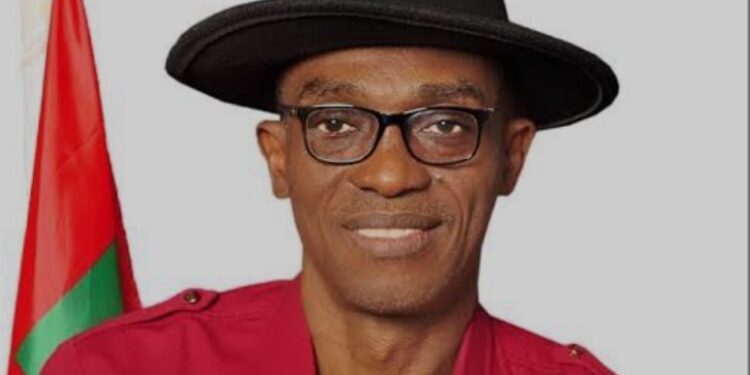The unfolding drama surrounding Julius Abure’s position as National Chairman of Nigeria’s Labour Party reached a pivotal moment with the Supreme Court’s recent ruling, though the interpretation of that judgment has become almost as contentious as the leadership battle itself. THISDAY Newspaper’s bold declaration that the court “sacked” Abure cuts through the legal complexities to present what many see as the practical reality of the situation, even if the judicial language was characteristically measured.
At the heart of this political and legal maelstrom lies a fundamental question about the boundaries between judicial oversight and party autonomy. The Supreme Court’s decision, while not containing explicit wording removing Abure from office, systematically dismantled every legal prop supporting his chairmanship. By declaring the lower courts lacked jurisdiction to rule on what it deemed an internal party matter, the apex court effectively erased all previous judgments that had recognised Abure’s leadership. This judicial erasure, coupled with the pointed dismissal of Abure’s cross-appeal as “unmeritorious,” created a legal vacuum around his position that his opponents were quick to exploit.
The aftermath revealed the familiar pattern of Nigerian political factions interpreting court rulings through their own partisan lenses. Abure’s camp clung to the technicality that the judgment didn’t expressly remove him, while his rivals in the Nenadi Usman faction rightly emphasised how the ruling left him without any judicial endorsement. This divergence in interpretation speaks volumes about how legal ambiguity in Nigeria often serves to prolong political conflicts rather than resolve them. The Supreme Court’s additional remarks about respecting constitutional term limits added fuel to the fire, implicitly supporting INEC’s position that Abure’s tenure had already expired months before the judgment.
What makes THISDAY’s characterisation of events particularly compelling is how it captures the substantive outcome rather than getting bogged down in legal technicalities. In the rough-and-tumble world of Nigerian politics, where legal rulings often serve as political weapons, the practical effect of the Supreme Court’s decision was indeed to leave Abure’s position untenable. The judgment may have been couched in the careful language of jurisdiction and justiciability, but its consequences were stark – by withdrawing judicial recognition, the court effectively pulled the rug from under Abure’s leadership claims.
This episode lays bare several enduring pathologies in Nigeria’s political system. The Labour Party’s inability to resolve its leadership crisis internally speaks to the weakness of institutional conflict-resolution mechanisms within Nigerian political parties. The recourse to litigation as a first resort rather than last resort highlights how courts have become battlegrounds for political contests that should properly be settled through democratic processes within party structures. Moreover, the ambiguity of the Supreme Court’s ruling, while legally precise, created space for the very political manoeuvring it ostensibly sought to prevent.
The broader implications extend beyond the Labour Party’s internal squabbles. When Nigeria’s highest court rules on matters of party leadership, it inevitably shapes the balance of power in ways that affect electoral politics, candidate selection, and ultimately governance. The warning about respecting constitutional term limits, while ostensibly directed at all political parties, carries particular resonance in a country where political elites routinely manipulate party constitutions to extend their stay in power.
As the dust settles, what emerges is a classic Nigerian political paradox – a court ruling that was simultaneously definitive in its legal reasoning yet frustratingly open to interpretation in its political consequences. Abure may technically still occupy the chairman’s office, but the Supreme Court has removed the legal scaffolding that made that occupation tenable. In this sense, THISDAY’s verdict that he was effectively “sacked” captures the political reality more accurately than any strictly legal reading of the judgment could.
The Labour Party now faces the difficult task of rebuilding its leadership structures while navigating the minefield of competing factions and interpretations. For Nigeria’s political class more broadly, this case serves as another reminder of the urgent need for stronger internal party democracy and clearer rules of engagement between political and judicial spheres. Until these systemic issues are addressed, we can expect to see more of these protracted leadership battles where legal technicalities overshadow substantive political discourse.
Ultimately, the significance of this episode lies not just in its immediate impact on Labour Party politics, but in what it reveals about the intersection of law and politics in Nigeria’s developing democracy. The Supreme Court’s intervention, while carefully framed in terms of jurisdictional boundaries, has had the practical effect of reshaping the political landscape – a reminder that in Nigeria’s complex governance ecosystem, judicial rulings often serve as silent architects of political reality.










































Discussion about this post